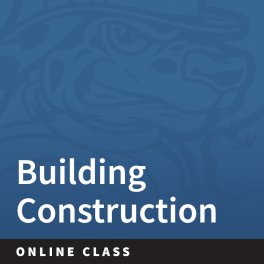2120 Building Construction
Ricky Rescue Training Academy’s “ATPC2120 Building Construction for the Fire Service” is a self-paced, online fire education course with continuous enrollment. It is a 45-hour course that forms part of the required coursework for Florida Fire Officer 1, Florida Fire Inspector 1, and Florida Fire Investigator 1. It also provides 45 CEUs towards the Florida State Fire Inspector certificate renewal program.
The “FFP2120, BFST2120, and ATPC2120 Building Construction for the Fire Service” course is not a building course. Instead, it is designed to identify and familiarize students with various construction features and the hazards they present in fire conditions. Students will also discuss how codes and standards enforcement influence fire spread, fire confinement, and building collapse.
Students will also learn how the construction elements of a building can affect the methods used for fire detection, inspection, and prevention, as well as occupant and fire crew safety and fire suppression. The course analyzes construction standards and policies to determine how these affect the way a building behaves when on fire. It also familiarizes students with construction industry definitions and terminology.
Upon successful completion of this course, students will be able to:
- Accurately identify potential hazards caused by fire and gravity
- Prevent or minimize injury from assault by hazards such as fire and gravity
- Comprehend how a building’s construction can have influence fire spread, fire containment, and types of structural collapse
- Comprehend significant and vital life safety issues relating to building construction
- Thoroughly understand construction history, specifically construction process and design features, and their impacts on fire services
- Understand how fire resistance impacts both building construction and types of building classifications
- Understand the forces and loads that buildings are subjected to and how these forces and loads will affect structural systems and components
- Comprehend building systems for moving people and materials, electrical units, smoke control, HVAC, and more, and how they relate to fire suppression and firefighting activities
- Understand how construction, interior furnishings, interior finishes, and fire doors affect the behavior of fires
- Understand what determines the foundation type and design with regards to load, surface materials, and settling
- Discern what considerations are involved when wood is used in building construction
- Discern various masonry products and their use in buildings and building construction
- Comprehend steel, including its properties and where it is commonly used in buildings
- Comprehend concrete, including its characteristics and how it is commonly used in buildings
- Understand roofing and roofing support systems, the materials they are made of, and how they can impact firefighting activities
- Understand how the construction of irregular buildings, such as underground buildings, high-rise buildings, atriums, correctional facilities, and membrane structures will impact firefighting and life safety
- Comprehend conditions and circumstances that are associated with buildings that are being demolished, expanded, remodeled, or are under construction
- Comprehend how and why structures can collapse under the impact of forces of nature, as well as the importance of building codes to ensure that buildings can more effectively withstand these forces
In addition to enrolling in this course, students must have:
- Building Construction Related to the Fire Service, (4th ed), IFSTA - ISBN: 978-0-87939-594-0
- NOTE: This book is not included with your purchase of this course but can be purchased through technical bookstores or online
- NOTE: Before purchasing any textbooks, ensure that you are using the correct ISBN as there may be several versions of the title available, depending on customization requirements for individual schools.
- A high-speed internet connection
- CHAMILO_CODE 2120
When completing an online or blended class through Ricky Rescue Training Academy, you will be held completely responsible for your own achievements. You must ensure that you work consistently and diligently to complete the coursework and related requirements in order to move forward. These open enrollment courses allow you to pace yourself, but will require sufficient self-discipline to keep up to date with the workload. Therefore, it is your responsibility to set aside the time required to complete the various units of these courses.



